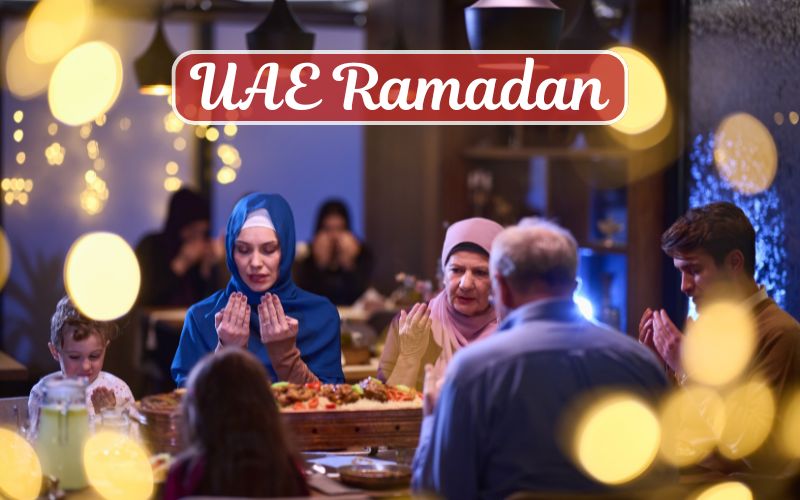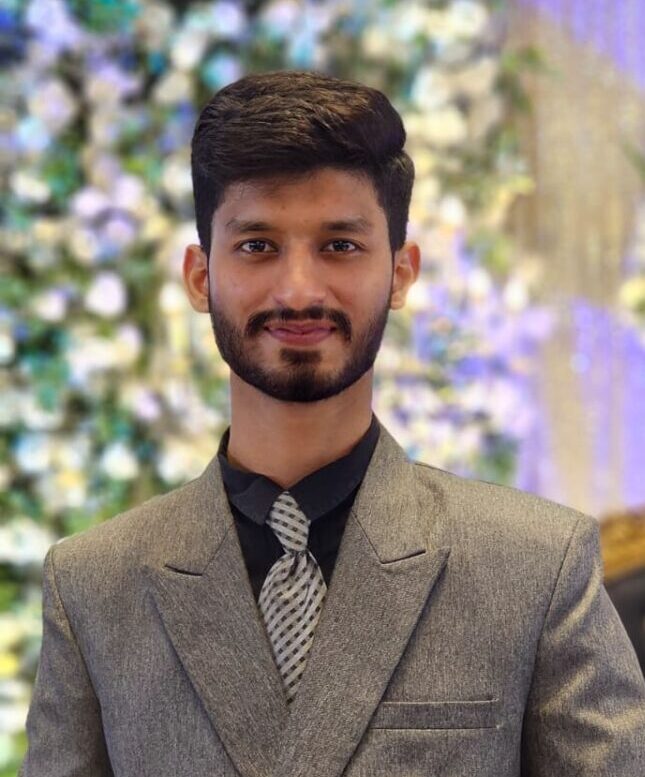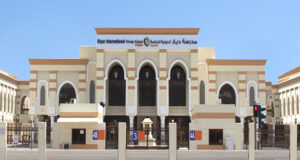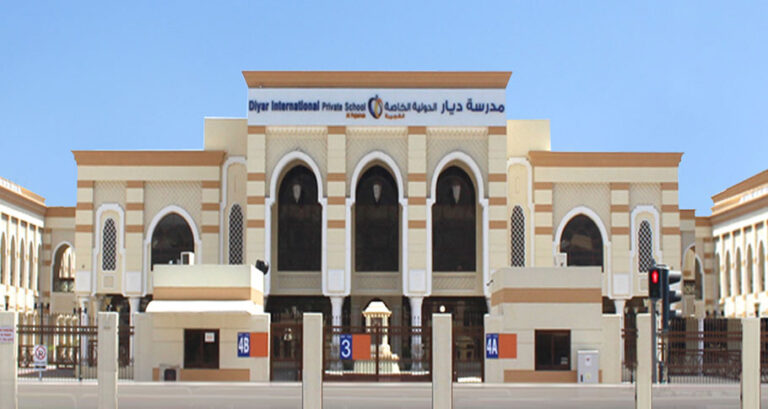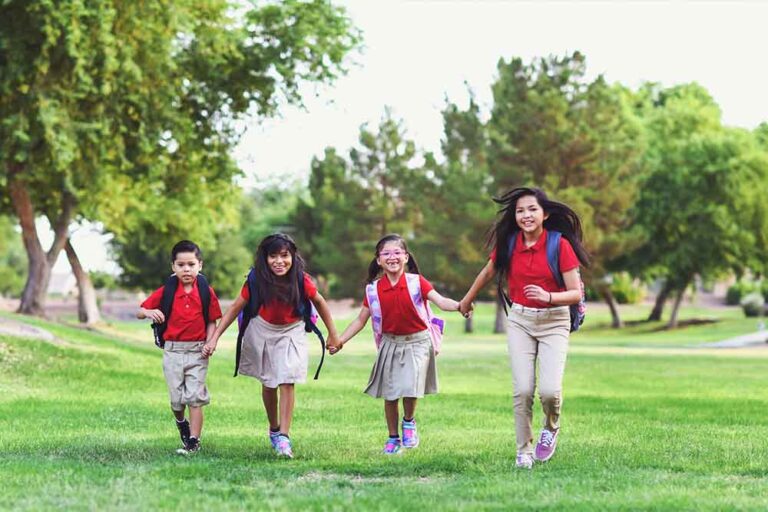Ramadan is the sacred month in Islam for the Muslims. It is the ninth month of the Islamic calendar. In this month, everyone is obligated for spiritual work, devotion, and self-control. It is the spiritual month that is observed by all the Muslims around the world by keeping a fast. One has to fast from dawn to dusk while engaging in the prayers and reciting the Quran. The most important things about this month are that the Quran was revealed to Holy Prophet (PBUH) in Ramadan. Hence, it is a time of great religious importance. Ramadan is said as “Ramadan Kareem” which means “Generous Ramadan”.
When Is Ramadan?
Ramadan comes according to the Islamic Lunar calendar instead of the Gregorian solar calendar. It is 11 days longer and that is why Ramadan comes before the previous every year. Starting and ending of Ramadan depends on the sighting of the new moon. According to astronomical calculations, Islamic scholars can estimate the exact starting and ending date.
Length and Purpose of Fasting
The fasting (Sawm) during Ramadan in Uae, which is one of the Five Pillars of Islam, is an annual event. This fasting lasts from pre-dawn (Fajr) prayer to sunset (Maghrib) prayer, which can take between 11 to 16 hours depending on the geographical location and the season. The core aims of fasting are:
- Strengthening self-discipline and devotion (Taqwa)
- Inspiring empathy for the less fortunate
- Building patience, gratitude, and ethical character
- Increased prayer and Qur’an reading, especially special nightly prayers known as Taraweeh
- Promoting social ties in the community through a shared Iftar meal
- Muslims abstain from food, drink, smoking, and sexual relations during fasting hours.
Who Observes the Fast?
Fasting is obligatory for all healthy and of-age Muslims. However, those that do not observe include:
- The sick as well as those with chronic diseases.
- Travelers.
- Women who are pregnant and breastfeeding.
- Women during their menstrual period.
- Old people who cannot observe it physically.
Children, who don’t have to fast until they are of puberty age(10 and 14 for girls, and 12 and 16 for boys), can also be a part of it. Those who cannot fast for legitimate reasons may pay for the missed fast by either fasting later or by feeding a poor person (Fidya).
Fasting and Kids
Even though children do not have to observe fasting until they are of age(10 and 14 for girls, and 12 and 16 for boys), many families promote the idea, asking their children to take part in partial fasts. Mosques and other community institutions often dub children who try out their first fast, feasts, and small rewards to motivate them to join in.
Daily Schedule During Ramadan
A day in Ramadan typically revolves around important rituals and prayers:
- Suhoor: The pre-dawn meal before fasting begins.
- Fajr Prayer: The first prayer of the day, performed before sunrise.
- Work and Daily Activities: Many workplaces and schools adjust schedules to accommodate fasting individuals.
- Afternoon Rest: Short naps are common, particularly in hot climates where fasting hours are long.
- Iftar: The breaking of the fast at sunset, traditionally with dates and water, followed by a meal.
- Maghrib Prayer: The fourth daily prayer is performed after Iftar.
- Taraweeh Prayers: Nightly prayers held in mosques, where large portions of the Qur’an are recited.
Special Activities During Ramadan
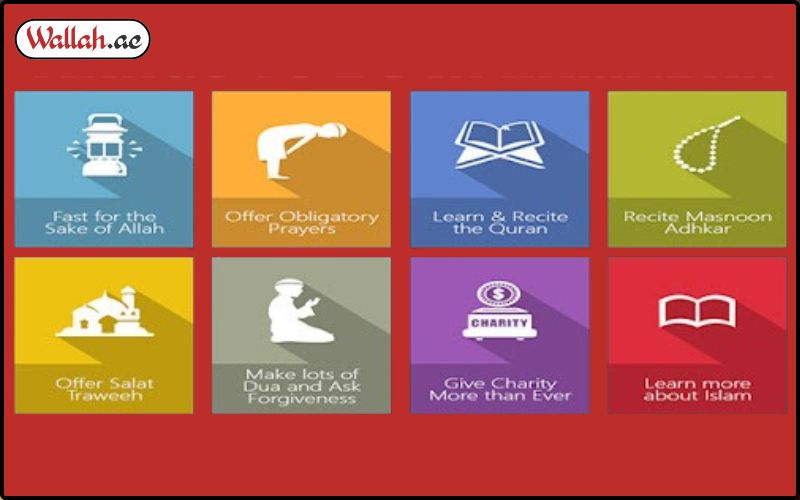
Ramadan is more than just fasting – it is also about increased spirituality and acts of community service. Here are some of the workshops and practices:
- Community Iftar Meals: Lots of mosques and organizations run out Iftar meals to the public.
- Taraweeh Prayers: Recited daily in congregation at mosques, often completing the entire Qur’an by the end of the month.
- Acts of Kindness: Donations to the vulnerable, food distribution, and fundraising are all encouraged.
- Interfaith Events: Many Muslim communities invite non-Muslims to learn about Ramadan and take part in Iftar gatherings.
- Lailat al-Qadr (Night of Power): This event takes place during the last ten days of Ramadan. It is the night believed to be the one when the Qur’an was first revealed. The worshippers spend the night praying, supplicating, and reciting the Qur’an.
Traditional Ramadan Foods
Different communities have their distinctive dishes for Suhoor and Iftar. Some common foods include:
- Dates and Water: This is the tradition of breaking the fast, and the action of the Prophet Muhammad (PBUH) that is followed.
- Soups and Stews: These types of food are consumed regularly to fill a gap in the diet after fluids and some nutrients are lost.
- Haleem, Gars, Harees, and Thareed: The dishes are very much popular in Middle East and South Asian countries.
- Fresh Juices and Laban: Their aim is to help the human body to recover the fluids lost during fasting.
Health Advantages of Fasting
Fasting has numerous benefits, not only on a physical level but also on a psychological one, namely:
- Detoxification and cleaning of the digestive system.
- Better metabolism and less cholesterol.
- More mental sharpness and concentration.
- Discipline and attention to eating have a new perspective.
As you count down the Days Until Ramadan, start planning how to make the most of this holy month in Dubai. Once Ramadan concludes, Eid Al Fitr in the UAE transforms the city into a vibrant celebration of lights, feasts, and family gatherings. Looking for inspiration? Explore our guide to the Best Things to Do on Eid in Dubai, from festive markets to fireworks and traditional Emirati experiences. Whether you’re preparing for Ramadan or celebrating Eid, Dubai offers unforgettable moments for every tradition.
Eid ul-Fitr Activities: A Festival at the End of Ramadan
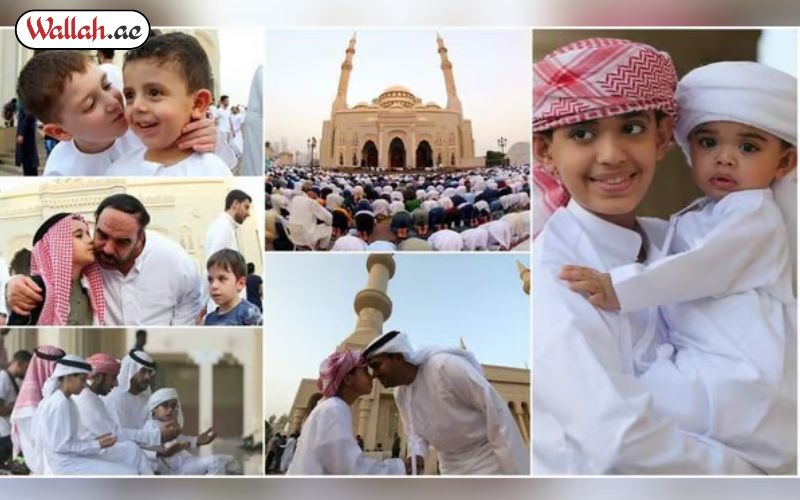
Eid ul-Fitr symbolizes the termination of the Ramadan month and is celebrated with full fervor. The main attributes are as follows:
- Special Eid Prayers: Those are held in a congregation in mosques and open grounds.
- Zakat al-Fitr (Charity Donation): A compulsory contribution it before the Eid prayers to help the needy who are able to celebrate.
- Family Gatherings and Festive Meals: People exchange gifts, wear new clothes and delight in special dishes.
- Traditional Greeting: “Eid Mubarak” (Blessed Eid) is usually said between Muslims.
Marking Ramadan in the UAE
The month of Ramadan is a period that is endured by the people in the UAE, carrying the long-set traditions and a feeling of being in a community together:
- Hagg Al-Layla (Mid-Shaaban Festival): A pre-Ramadan event where kids collect sweets and nuts.
- Iftar Cannon Tradition (Midfa Al Iftar): A cannon is fired that marks the end of the fast and is a tradition from Sheikh Zayed’s period.
- Charity Initiatives: Government and private organizations together organize Ramadan tents and food distribution programs.
- Quran Competitions: Events such as the Dubai International Holy Quran Award encourage Quranic memorization.
Ramadan Etiquettes for Non-Muslims
Whatever the visitors and expatriates are, they should be conscious of the customs of the territories primarily inhabited by Muslims during Ramadan:
- Avoid Eating, Drinking, or Smoking in Public: To show respect for people fasting.
- Dress Modestly: Dressing conservatively is preferred.
- Accept Iftar Invitations Graciously: It is good to accept or express gratitude if you are invited to an Iftar meal.
- Keep a Respectful Demeanor: Do not play loud music, do not hold hands, and don’t swear.
Health Tips for Fasting!
Eat a nutritious Surooh that will give you enough energy for the whole day.
Make sure you are drinking plenty of water between Iftar and Suhoor, to keep yourself properly hydrated.
Avoid overeating at Iftar to prevent indigestion.
Sleep well and get enough rest to maintain your energy levels.
Minimize your physical exertion, but keep active by walking or light exercise.
Conclusion
Ramadan is a period when people work towards personal development, spirituality is at its peak, and community ties are strong. Through their understanding of its values and their traditions, Muslims and non-Muslims can both appreciate the depth and beauty of this sacred month.
Most Repeated Questions by User
- Why do Muslims fast during Ramadan?
Fasting is an act of worship that promotes self-discipline, spiritual growth, and empathy for those in need. - Who is exempt from fasting?
Exemptions include children, the elderly, pregnant or nursing women, travelers, and those who are ill. - How long do Muslims fast each day?
Muslims fast from dawn (Suhoor) until sunset (Iftar), typically lasting 11-16 hours, depending on location. - What foods are commonly eaten to break the fast?
Traditionally, Muslims break their fast with dates and water, followed by a balanced meal with cultural dishes. - What is Eid al-Fitr?
Eid al-Fitr is a festive holiday marking the end of Ramadan, celebrated with prayers, feasts, and charitable giving.

